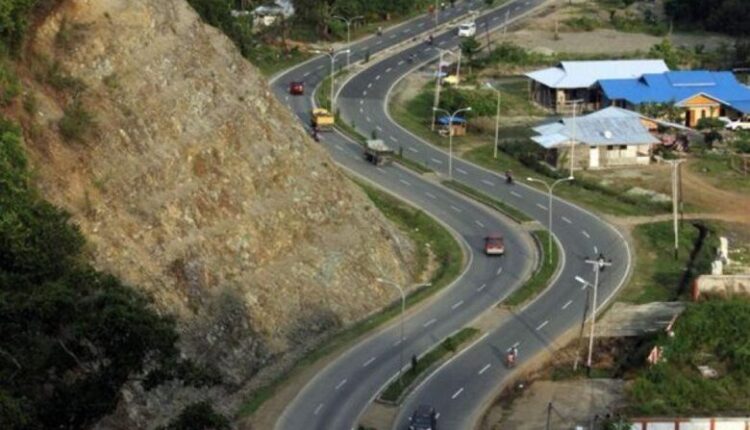By: Fisella Wandama )*
Our beloved Papua Province is currently facing various problems, ranging from limited infrastructure to complex health problems. So, to achieve the vision of inclusive and sustainable development, a joint commitment from the government, society and the private sector is needed to improve the accessibility of education, health and basic infrastructure. Because developing Papua is not only physical, but also requires improving the quality of human resources, so that the hope of accelerating improvements in the quality of life of the Papuan people can soon be realized.
The involvement of all stakeholders is absolute, so that all elements of society in a region can progress simultaneously with other regions. Empowerment and meetings with local communities, environmental protection, and sustainable economic development are also the main keys in efforts to ensure that Papua can grow into a healthy, empowered, and independent region for its entire population.
The Acting Mayor of Sorong, Septinus Lobat, expressed his hope that the DPD RI can prioritize monitoring the use of Special Autonomy funds, even though there is already a special agency responsible for this. He emphasized the importance of monitoring to ensure that these funds actually achieve their goals for the progress and welfare of the Papuan people.
The chairman of the DPD RI, La Nyalla Mahmud Mattalitti, responded by emphasizing that his party was committed to fighting for regional interests at the central level, in accordance with the oath of office taken by its members. He also underlined the importance of transparency and accountability in the management of Special Autonomy funds, as well as the need for justice, equality and protection of the rights of indigenous Papuans in the regional development process.
Chair of the Indigenous Peoples’ Institution (LMA) of Southwest Papua (PBD) of Sorong City, Fatra Mochammad Soltief, called for the importance of maintaining conducive security and social security conditions in supporting development in the Papua region. Fatra emphasized that the Papuan people must show high morality, not be easily provoked, and respect tolerance, unity and national integrity.
Maintaining security and order does not only depend on the government or security forces, but involves all elements of society. Fatra emphasized that the Papuan people must be united in facing challenges and not be provoked into separating themselves from the Republic of Indonesia. Fatra gave an example that with development and regional expansion in Papua, the central government has shown its active commitment to advancing the land of Papua.
Fatra also highlighted the importance of economic factors, education and health as keys to the success of a country’s development. Fatra praised the government’s efforts to maximize development in Papua through various initiatives, including special autonomy (Otsus). Fatra hopes that all elements of society can work together to maintain peace in Papua from various threats such as robberies, alcohol and OPM, while developing and advancing Papua with full trust and unity.
From the health aspect of the Papuan generation, the Head of the Nabire Development Planning Agency (Bappeda), Mukayat, highlighted the intensive efforts made to combat stunting . In the last three months, Nabire has implemented a number of important steps to reduce stunting rates. These steps include stunting situation analysis , structured activity planning, and stunting discussions to identify challenges and appropriate solutions. Apart from that, developing actor elements and an efficient data management system is an integral part of the strategy.
In efforts to handle stunting , Nabire also succeeded in winning an award from the Central Papua Provincial Government. This appreciation takes the form of a prize worth 1 billion rupiah as recognition of the commitment and maximum results that have been achieved in overcoming the problem of malnutrition in the area. Mukayat expressed his pride in this achievement, but also emphasized the importance of the community’s active role in maintaining nutritional health.
According to Mukayat, community participation is very crucial in ensuring the success of the stunting reduction program . Mukayat invites the community to be more open and responsive to conditions of malnutrition that may be experienced by community members. Increasing awareness and early reporting will enable faster and more effective treatment, as well as reduce the negative impact of stunting on the growth and development of children who are the next generation for Papua’s progress.
Nabire continues to be committed to optimizing all available resources to achieve a more significant stunting reduction target in the future. Mukayat emphasized that his party will continue to move forward with planned steps and supported by accurate data, along with efforts to strengthen cross-sector collaboration and build community capacity in overcoming this nutritional problem in a sustainable manner.
With support and cooperation from all related parties, it can become an example for other regions in managing and overcoming stunting effectively. The steps that have been taken are not only for now, but also to improve the quality of life and welfare of future generations in Papua and its surroundings.
With a spirit of unity and commitment to building a healthy and empowered Papua, all parties must continue to work together to overcome existing challenges. Strategic steps in infrastructure, health and education must continue to be encouraged with courage and seriousness. In this way, Papua will not only be an example of success in development in Indonesia, but will also inspire prosperity and sustainable progress for all its people.
)* The author is a Papuan student living in Jakarta
